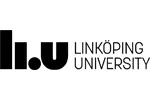We're moving! This site will be relocating to goingto.university in 2026. Please update your bookmarks to the new address.


| The award | How you will study | Study duration | Course start | Domestic course fees | International course fees |
|---|---|---|---|---|---|
| MA | Part-time | 4 semester | - | - | SEK 96000 per year |
Governments all over the world are urging citizens to train and educate themselves in order to stay competitive in a connected world. Critical discourses on globalisation require the ability to learn in situations that span vast cultural and geographic divides. Our programme is for those who wish to understand adult learning in the framework of global change within a unique digital learning format that has won international acclaim.
Online learning and master thesis
This master’s programme enhances students’ ability to work in a globalising world and to challenge the traditional perspectives on globalisation. Our programme is an equal collaboration between Linköping University and partner universities in Canada (University of British Columbia), South Africa (University of Western Cape) and Australia (new partner to be announced).
All course activities will be done within a digital learning platform, where you will learn together with students from the partner universities in a global class, making the programme truly international. The courses contain topics such as locating oneself in global learning, adult learning: contexts and perspectives, global/local learning, and understanding research.
Our graduates are able to learn and teach globally, use global connective technologies, understand knowledge-based societies and their implications for learning, understand globalisation discourses, develop cultural sensibilities and sensitivities and develop an equality perspective for learning and re-framing their own professional practices.
They may also continue their academic careers in further projects.
The programme won the 2005 Curriculum Innovation Award, awarded by the Commission of Professors of Adult Education of the American Association for Adult and Continuing Education and also The e-Learning Excellence Award(2015) at the 14th European Conference on E learning, held at Hertfordshire University, UK.
Selection will be based on academic grades and Letter of Intent. The applicant should submit a Letter of Intent written in English, explaining why they want to study this programme (about 1000 words). The letter should include a summary of the bachelor essay/project, and a description of academic studies and work experience relevant to adult learning.
Citizens from countries outside the EU/EEA and Switzerland must pay tuition fees for higher education in Sweden. Exceptions might apply. For detailed information please check www.universityadmissions.se. Higher education studies for citizens of EU/EEA countries and Switzerland are free of charge.
Generally, tuition fees at Linköping University are between SEK 80,000 and 136,000 per academic year.
Tuition fees at Linköping University include the following benefits:
Bachelor's degree, equivalent to a Swedish Kandidatexamen, with a major in education, adult learning or other subject relevant to the field of adult learning
or
Bachelor's degree, equivalent to a Swedish Kandidatexamen, and additional academic studies relevant to the field of adult learning
or
Bachelor's degree, equivalent to a Swedish Kandidatexamen, and additional documented work experience of at least three years in adult education.
English, corresponding to the level of English achieved in Swedish upper secondary education (English B/ English 6).
Below are some suggested courses at other providers that you may also be interested in:
Advanced Bachelor of Bioinformatics Advanced Diploma, Bachelor Degree
Howest University of Applied Sciences
Find out moreFashion Journalism Certificate of Attendance
IIFM | Italian Institute of Fashion Management
Find out moreInformation and Communications Engineering (Business Engineering) MSc
University of Klagenfurt
Find out moreIf you do not meet the entry requirements for this course then consider one of these postgraduate preparation courses from another institution:
Graduate Diploma of Engineering (Safety, Risk and Reliability)
Engineering Institute of Technology
Find out moreThere are 28 other courses listed from Linköping University. A selection of these are displayed below:
Business Administration - Strategy and Management in International Organisations MSc
Linköping University
Find out moreJoin the StudyLink email list and never miss a chance to turn your study abroad dreams into reality!

Find out more about studying in Sweden